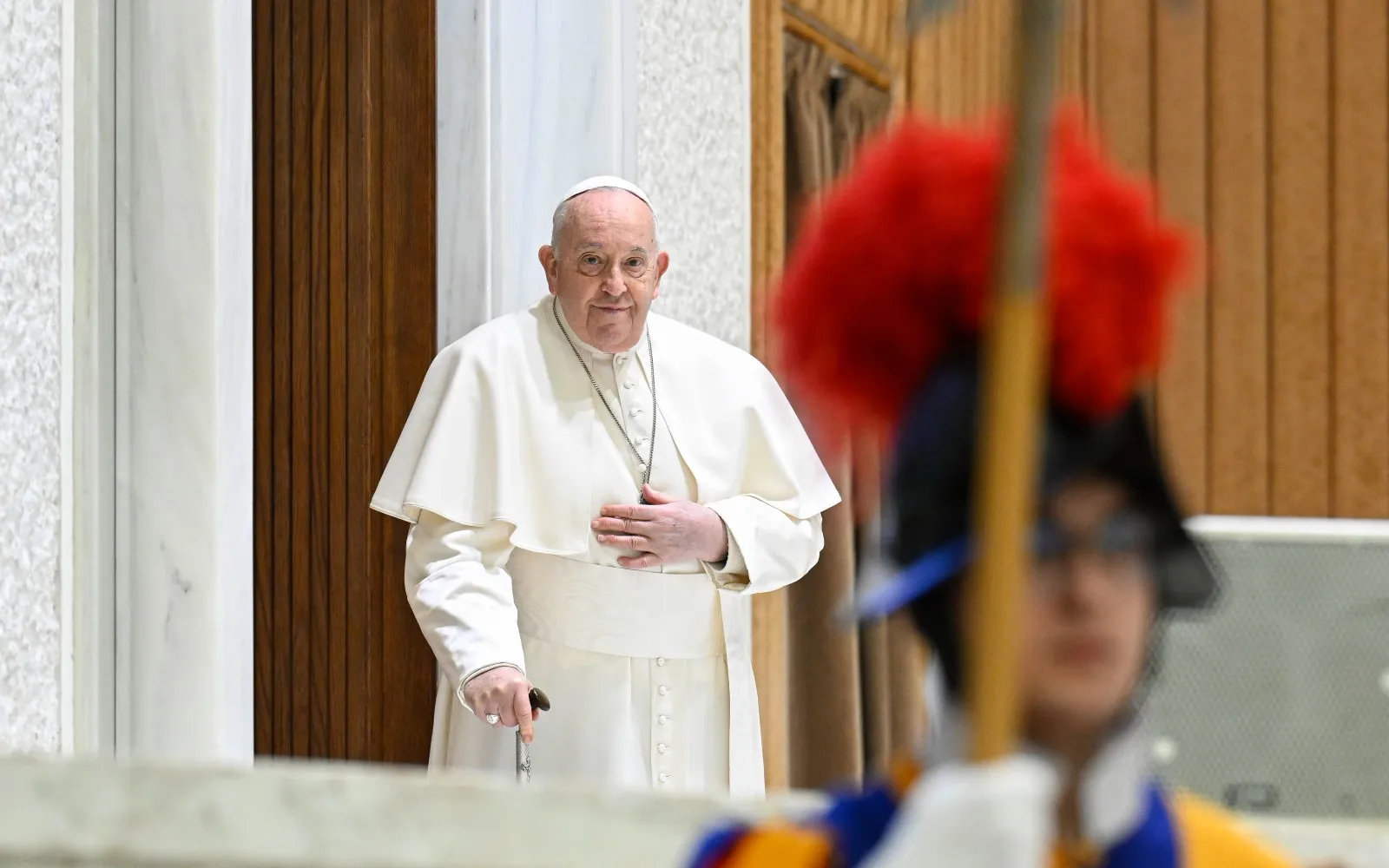In Lent, we find new criteria of judgment and a community with which to embark on a path we have never traveled before. This implies a fight, which the book of Exodus and the temptations of Jesus in the desert clearly tell us. To the voice of God, who says: “You are my dearly beloved Son” (Mc 1,11) and “you will have no other gods before me” (Ex 20:3), the lies of the enemy are in fact opposed. Idols are more fearsome than Pharaoh; we could consider them as his voice in us. Feeling omnipotent, recognized by everyone, taking advantage over others: every human being feels the seduction of this lie deep inside. It’s a beaten path. Therefore, we can become attached to money, to certain projects, ideas, objectives, to our position, to a tradition and even to some people. Those things, instead of driving us forward, will paralyze us. Instead of uniting us, they will confront us. There is, however, a new humanity, that of the small and humble who have not succumbed to the charm of lies. While idols make those who serve them mute, blind, deaf, immobile (cf. Sal 115,8), the poor in spirit are immediately open and well disposed; They are a silent force of good that heals and sustains the world.
It is time to act, and in Lent to act is also to stop. stop at prayerto welcome the Word of God, and stop like the Samaritan, before the wounded brother. The love of God and neighbor is one love. Not having other gods is stopping before the presence of God, in the flesh of our neighbor. That is why prayer, almsgiving and fasting are not three independent exercises, but a single movement of opening, of emptying: away from the idols that overwhelm us, away from the attachments that imprison us. Then the atrophied and isolated heart will awaken. Therefore, slow down and stop. The contemplative dimension of life, which Lent will make us rediscover, will mobilize new energies. In the presence of God we become sisters and brothers, we perceive others with new intensity; Instead of threats and enemies we find companions and traveling companions. This is God’s dream, the promised land to which we march when we leave slavery.
The synodal form of the Church, which in recent years we have been rediscovering and cultivating, suggests that Lent is also a time of community decisions, of small and large decisions against the current, capable of changing the daily lives of people and the life of a neighborhood: purchasing habits, care for creation, the inclusion of the invisible or the despised. I invite all Christian communities to do this: to offer their faithful moments to reflect on lifestyles; to take time to verify their presence in the neighborhood and their contribution to improving it. Woe to us if Christian penance were like that which saddened Jesus. He also tells us: “Do not make a sad face, as the hypocrites do, for they disfigure their faces so that it can be seen that they are fasting” (Mt 6,16). Rather, let the joy be seen on the faces, let the fragrance of freedom be felt, let that love be released that makes all things new, starting with the smallest and closest. This can happen in every Christian community.
